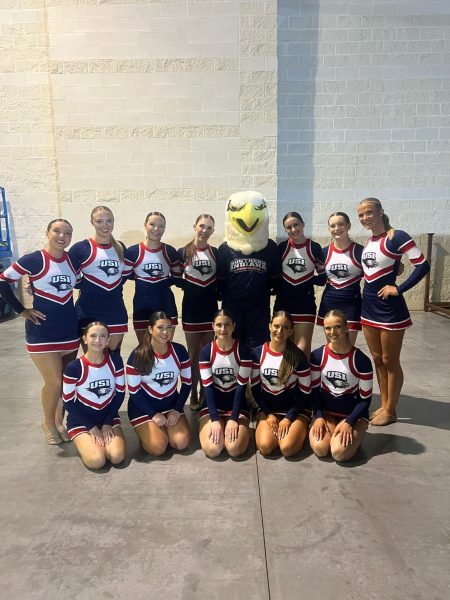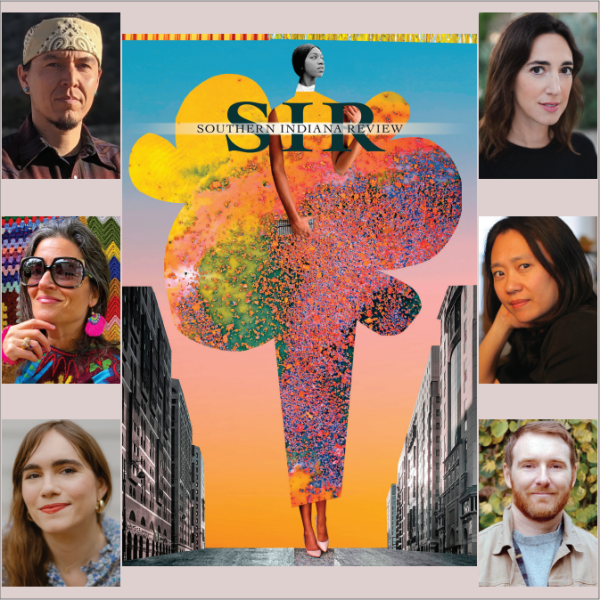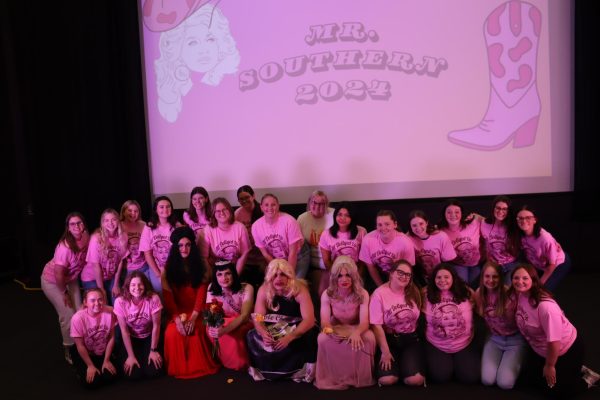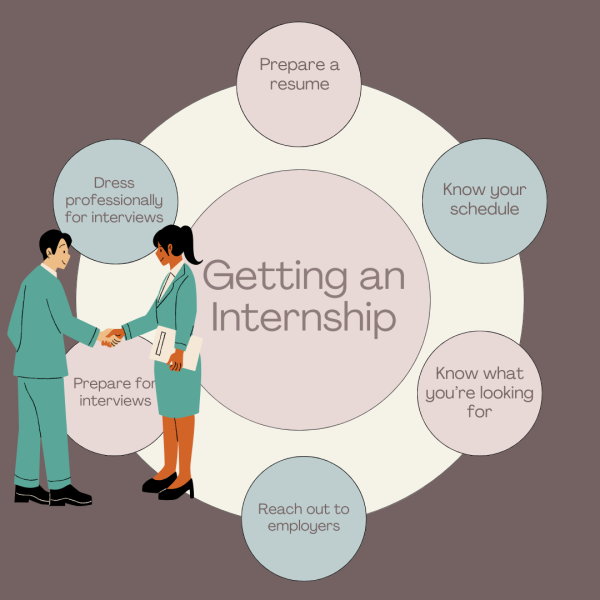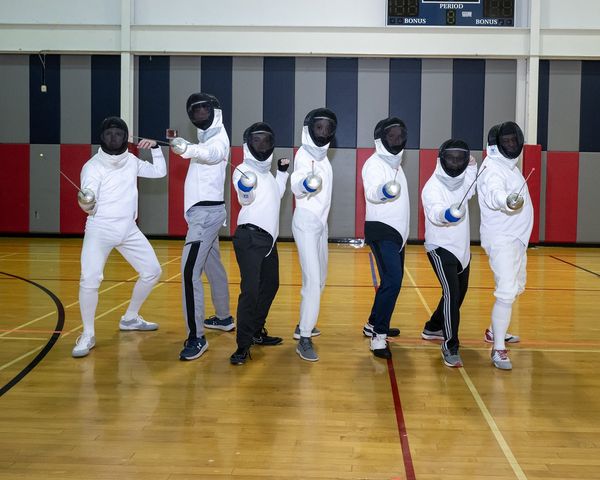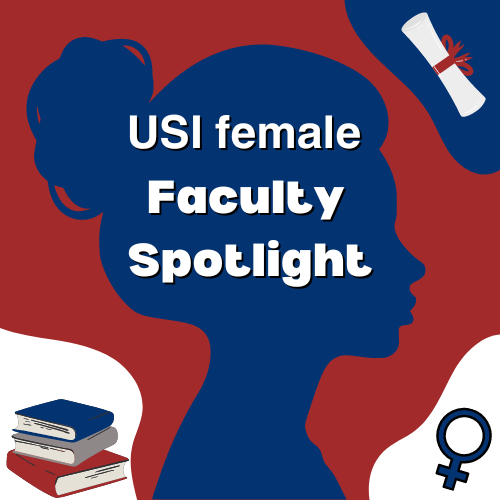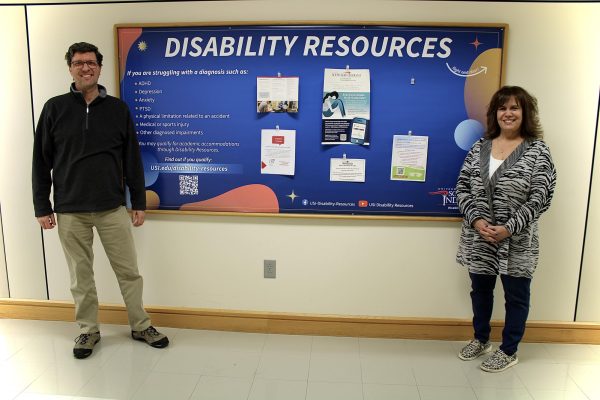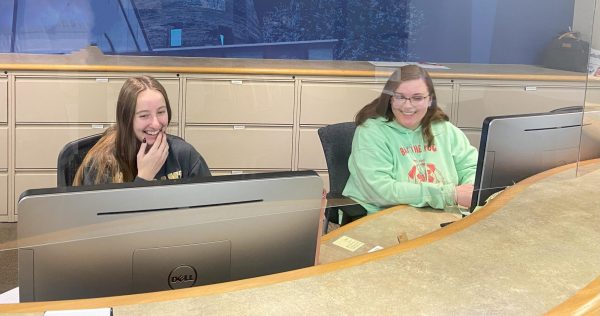Stepping Out
Nearly 500 attend annual awareness event
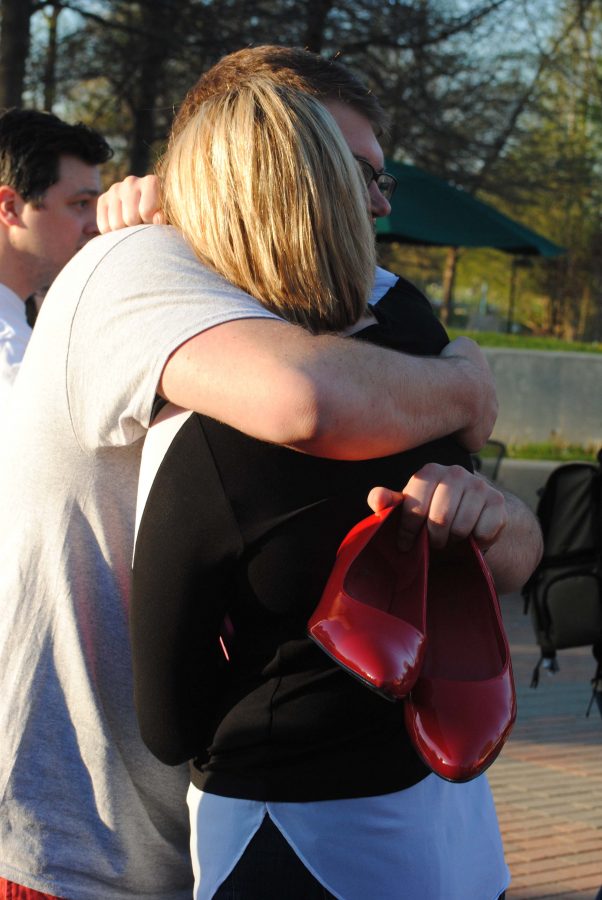
Incoming SGA President Ashley Wright hugs Jason Minor, SGA chief justice, during the annual Walk a Mile in Her Shoes event Tuesday at the University Center Amphitheatre. “The event hit closer to home than expected,” Wright said.
Ellen Cooper didn’t think she would make it through middle school, let alone high school.
After being raped when she was 13-years-old, she became depressed and thought she would eventually commit suicide.
Today, she is a junior English major in the Honors College who has made the Dean’s List every semester of college and writes opinions for The Shield.
Most importantly though, she is happy, she said.
Cooper was the keynote speaker at the university’s 10th annual Walk a Mile in Her Shoes event, which was designed to raise awareness about sexual assault and domestic violence, Tuesday afternoon in Carter Hall.
After her rape, Cooper said she stopped eating and doing her schoolwork.
“I stopped practicing my violin,” she said. “I went from being second chair in the orchestra to being in the very last row.”
Cooper began drinking, smoking, doing drugs, experimenting sexually and self-harming.
“I would take long showers where I would sit there and let the water run over me so hot that it would burn my skin and left it red and blotchy,” she said. “I just wanted to feel clean.”
Cooper said she hated herself and saw no point in her existence.
“I would often tell people that I had no soul because the rape had taken it from me,” she said.
Eventually, Cooper said, she found healing in therapy, friend and family support, and spirituality.
“I realized that I no longer had to feel ashamed because I had nothing to feel ashamed of,” she said. “I felt free for the first time in a very long time.”
Even though she is better, Cooper said she is still affected by her rape.
Because Cooper is aware she’s afraid to let people get close to her, she said, she’s able to combat it and has had several healthy romantic relationships.
“I have not harmed myself in four years,” she said. “There have been times when I’ve sat on the floor of my apartment sobbing, wailing as I resist the urge to hurt myself to make myself feel better. But by the grace of God, I have resisted.”
Cooper told audience members that hadn’t been sexually assaulted have a responsibility to advocate for those who had and learn about bystander intervention.
“To my fellow survivors, you are strong,” she said. “Remember that you are not alone in your suffering.”
She encouraged survivors to reach out to friends and family and seek counseling.
“It does not mean that you are weak,” she said. “It means that you are bravely fighting for your life and you are worth saving.”
After her speech, the audience left Carter Hall to a spot near the fountain between the Orr Center and the University Center, where several men changed into high heels.
These 450 to 500 students, faculty and community members circled campus,.Following chalk arrows, they passed Rice Library, the Business and Engineering Center, the Liberal Arts Center and the UC before returning to their starting point.
Several people carried signs with sexual assault statistics, such as women 12-34 are most likely to be raped, and 40 percent of rapes happen to people under the age of 18.
Once everyone completed the walk, several influential men on campus and in the community gave brief statements and a statistic regarding sexual violence.
“It’s really amazing to see all these influential men here, especially Dr. Rush (the Dean of students), the local sheriff and Mayor Lloyd Winnecke,” Gender Violence Prevention Committee member Elizabeth Downard said.
The event showed people the campus and community care about making the community safer and let people know they need to take care to do the right thing, the senior business administration major said.
“There’s this code amongst people,” she said. “If you see someone who looks uncomfortable in general, regardless of the situation, you go make sure that they’re okay.”
The Dean of Students Office student representative said she has actually gotten involved before when she thought someone was in trouble.
Sigma Pi executive officer and social chairman Sam Stoffer said many people he knows who have never experienced sexual assault or known someone who’s gone through it don’t understand how hard it is.
This event could help them understand, the sophomore public relations and advertising major said.
“A lot of people aren’t aware of what’s really classified as gender violence or sexual assault,” he said. “They see this big gray area when there’s really not a lot of gray. It’s a black or white issue.”
Albion Fellows Bacon Center senior victim’s court specialist Christina Wicks said people don’t often consider the aftermath of sexual assault.
“They don’t think about how the victim has to go through this healing process and deal with their emotions and get back to normal functioning again,” she said.
Only 10 percent of sexual assault survivors file police reports, Wicks said.
“What happened to you is not your fault,” she said. “There is help out there. You may not be ready just yet, but no matter what, there are going to be people there to help you when you are ready.”
FAST FACTS
Victims of sexual assault or domestic violence should contact the USI Counseling Center at 812-464-1867 or the Albion Fellows Bacon Center at 800-339-7752.

